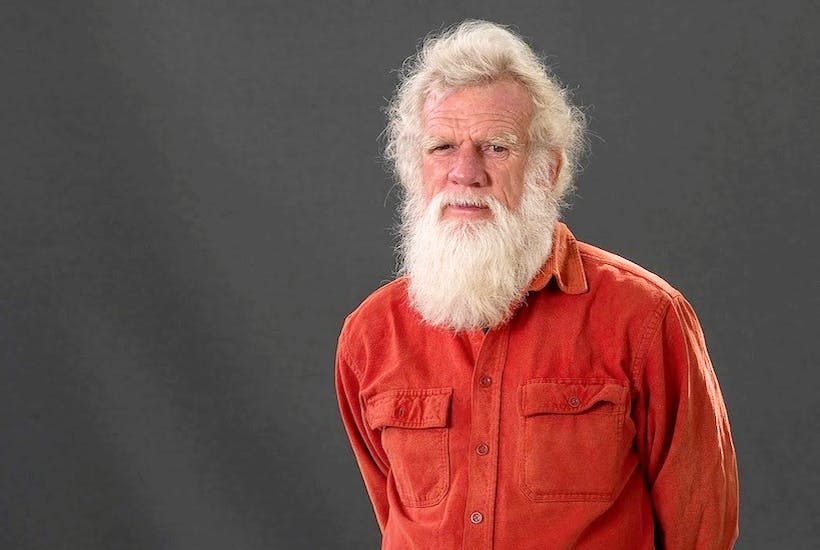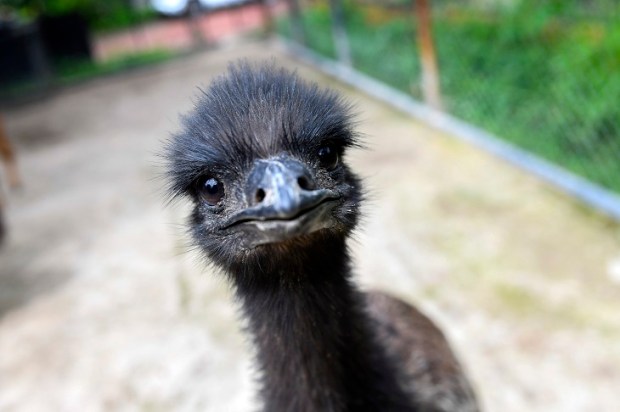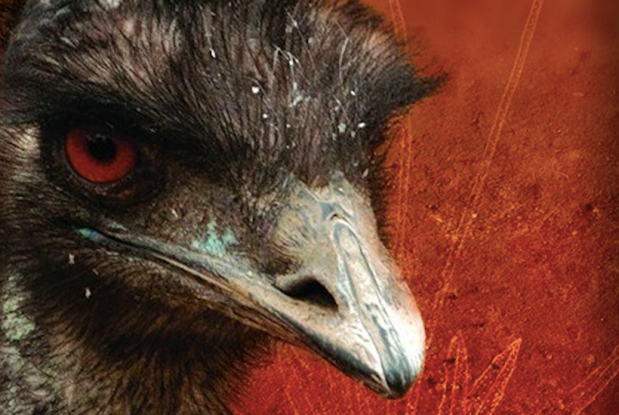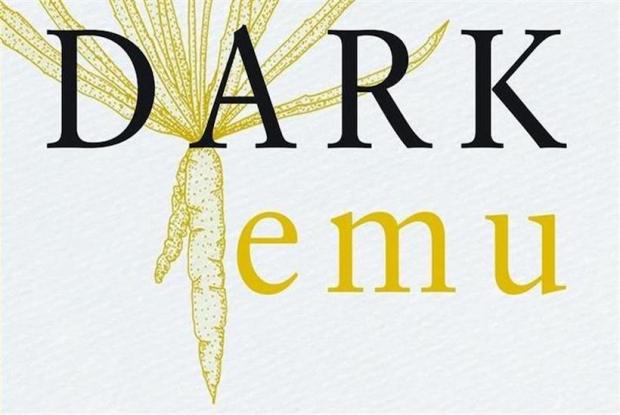Finally, the spurious claims of Bruce Pascoe are coming under serious scrutiny from a source more credible than those alleged hotbeds of racism, Quadrant or the Dark Emu Exposed website.
Last Saturday’s Age and Sydney Morning Herald contained an article by Stuart Rintoul, ‘Has Dark Emu been debunked?’ that examines a new book Farmers or Hunter-Gatherers? The Dark Emu Debate by two Melbourne University academics, anthropologist Peter Sutton and archaeologist, Keryn Walshe.
More power to them, I say. But I must also say I take issue with the subtitle of their book. ‘The Dark Emu Debate’? Really? What debate, I ask. Andrew Bolt, Quadrant and Dark Emu Exposed have been trying to engender some sort of debate for a number of years. Our efforts have been met with nothing from academia or mainstream media but a stony silence. Indeed, where the very existence of our work has been grudgingly acknowledged, we have been dismissed as hateful, right-wing racists, which therefore automatically discredits us. Or, rather, in their mind at least, allows the righteous Left a fig-leaf to refuse to engage with our arguments.
Rintoul pretty much takes that line, admittedly omitting the invective:
Pascoe, who, like Sutton, also grew up in a working-class family (becoming a teacher and then a writer of literary fiction, non-fiction, poetry, essays and children’s literature before finding unexpected fame), has been targeted by conservative commentators and media who have questioned both his version of history and his Aboriginality.
The conservative magazine Quadrant, whose editor Keith Windschuttle has accused historians of fabricating the extent of colonial violence, called him a “fauxborigine”. A vitriolic website, “Dark Emu Exposed”, was created by “a collective of Quiet Australians from many walks of life who question, and want to hold to account, authors who appear to be rewriting our Australian history to progress their own particular, political narrative”.
The Sutton/Walshe book is not the first criticism of Dark Emu. Australian National University anthropologist Ian Keen has said that Pascoe’s evidence for Aboriginal farming is “deeply problematic”, although he also believes that some of the criticism has been used to support a racist agenda. Christophe Darmangeat, a lecturer in social anthropology at the Sorbonne in France, wrote that in Dark Emu Pascoe mixes “perfectly proven elements, others possible but more doubtful, others very improbable, and finally frank fabrications, firing on all cylinders by handling concepts and facts with a disarming casualness”. Quadrant published a polemical book, Bitter Harvest, against Pascoe’s claims. But Sutton and Walshe’s Farmers or Hunter-Gatherers? is the most forensic and best credentialled examination and repudiation of Dark Emu.
The Sutton/Walshe book may not be the first criticism of Dark Emu, as Rintoul notes. But then neither is the Ian Keen paper the first. Adding weight to Andrew Bolt’s initial scepticism of Dark Emu, the Dark Emu Exposed website was first on the scene followed in late 2019 by Bitter Harvest (written by Peter O’Brien, Stuart, by the way) which I would also regard as forensic, although I do concede I am not as academically qualified as Sutton and Walshe. But it doesn’t take an anthropologist, an archaeologist or even a historian to identify the manifest fabrications and distortions in Dark Emu. It just takes an auditor. And that is effectively what Bitter Harvest is – an audit, at least as far as the central premise is concerned. But back to the SMH article:
Hunter-Gatherers? The Dark Emu Debate …. published next week by Melbourne University Press, is damning. In page after page, Sutton and Walshe accuse Pascoe of a “lack of true scholarship”, ignoring Aboriginal voices, dragging respect for traditional Aboriginal culture back into the Eurocentric world of the colonial era, and “trimming” colonial observations to fit his argument. They write that while Dark Emu “purports to be factual” it is “littered with unsourced material, is poorly researched, distorts and exaggerates many points, selectively emphasises evidence to suit those opinions, and ignores large bodies of information that do not support the author’s opinions”.
“It is actually not, properly considered, a work of scholarship,” they write. “Its success as a narrative has been achieved in spite of its failure as an account of fact.”
Pretty much what Andrew Bolt, the folks at Dark Emu Exposed and I have been saying ad nauseam for two years. Rintoul provides a half dozen or so examples of Pascoe’s perfidy. They include:
Where Pascoe quotes explorer Thomas Mitchell discovering grass that had been pulled and piled into “hay-ricks” that stretched for miles, for example, Pascoe suggests that Aboriginal people were practising an idyllic agriculture. But he leaves out Mitchell’s puzzlement about the purpose of these “ricks” and Mitchell’s later writing that all attempts to persuade Aboriginal people to till the ground had failed.
Pascoe records Mitchell’s astonishment on coming upon a large, deserted village during his Australia Felix expedition, which he estimated housed “over 1000” people. This, says Sutton, is “pure fiction”. “All Mitchell says is that his party ‘noticed some of their huts’; there is no mention of anyone counting anything.” Pascoe then quotes a member of Mitchell’s party, Granville Stapylton, as saying that the buildings “were of very large dimensions, one capable of containing at least 40 persons and of very superior construction”. But he omits Stapylton’s speculation that this was “the work of a white man”, probably the runaway convict William Buckley, who lived with the Wathaurong people for three decades.
Elsewhere, Pascoe cites Charles Sturt’s discovery of a large well and village somewhere north of Lake Torrens in South Australia, but neglects to say that Sturt saw no signs of recent occupation. When Sturt finds grass set out to dry and ripen, Pascoe guesses this was because of surplus grain, which suggested “sedentary agriculture”. Sutton ridicules the idea. “The suggestion, if that is what Pascoe intends, that anyone could practise ‘sedentary agriculture’ in that blasted desert environment is simply ill-informed,” he writes.
Similarly, when Pascoe quotes Alice Duncan-Kemp’s memory of women on the Diamantina River in the early 20th century sprinkling seed over the ground from woven dilly-bags, he fails to mention that Duncan-Kemp wrote that this was done “as they danced and sang the rain song” as part of a rain increase ceremony.
In Dark Emu, and the children’s version of the book, Young Dark Emu, and a teaching resource, Dark Emu in the Classroom, a photograph shows a large “pointed dome house”, inferred to be Aboriginal. It is not. It is from the Melanesian region of the eastern Torres Strait.
Every one of the above fabrications/misrepresentations is covered in Bitter Harvest. As are, I have no doubt, a multitude more that we will find will adorning the pages of Hunter–Gatherers? once it becomes available. Why are they now, all of a sudden, considered significant enough to merit inclusion in the wonderfully woke SMH and Age? We all know the answer to that. It’s the provenance, dear boy. Bolt et al are ‘not quite the thing’.
Let me recap one of the points Sutton makes above, viz:
When Sturt finds grass set out to dry and ripen, Pascoe guesses this was because of surplus grain, which suggested “sedentary agriculture”. Sutton ridicules the idea. “The suggestion, if that is what Pascoe intends, that anyone could practise ‘sedentary agriculture’ in that blasted desert environment is simply ill-informed,” he writes.
To begin with you can bank on the fact that the ‘suggestion of sedentary agriculture’ is exactly ‘what Pascoe intends’. There is no ‘if’ about it. His whole book is replete with such deceptions, some more overt than others. It is not Pascoe who is ‘ill-informed’. That does him way too much credit. It is his multitude of readers, many of them school children, who are ill-informed, or rather misinformed.
Ironic, is it not, that this expose comes courtesy of the University of Melbourne, which recently appointed Pascoe as some kind of Professor of Indigenous Agriculture – an oxymoron if ever there were one. Rintoul is not unaware of the irony. He writes:
Sutton and Walshe’s book comes, uncomfortably, from the publishing house of the university that last year appointed Pascoe as Enterprise Professor in Indigenous Agriculture.
At his home at Gipsy Point, Victoria, Pascoe waits for the storm to break. He seems sanguine. In a written response to extracts shown to him, he tells Good Weekend, “Dark Emu has encouraged many Australians to recognise the ingenuity and sophistication of the many Aboriginal cultures, societies and land-management practices, which had not previously been brought to mainstream attention. The extent of Aboriginal social and economic organisation has been surprising to many Australians and a nuanced debate needs to be ongoing.”
He says it would be “disappointing” if Australia’s understanding of Aboriginal history and culture “digressed to a limiting debate about semantics and nomenclature”.
“Hunter-gatherer and farmer are both settler/colonial labels, and the long prevailing negative interpretation of hunter-gatherer has been used as a weapon against Aboriginal and Torres Strait Islander peoples (as a justification for terra nullius),” he writes.
“Language can be used to help people to see the world differently, to open minds to new ways of seeing. This is what I tried to achieve with Dark Emu.”
As to Pascoe waiting for the storm to break, I don’t think he’d be too concerned. The non-response he gave to Rintoul is all of a piece with the non-response he gave to Kerry O’Brien in a softball interview last year. He’s been getting away with it so long, he knows that those cheerleaders who have supported him so vociferously are not going to want to end up with a scrub-turkey (domesticated of course) egg omelette all over their faces. Among their number we look forward to hearing from enthusiasts Professors Lynette Russell, Ian McNiven, and Harry Lourandos.
And, lo and behold, in Sunday’s Nine papers, even in the face of the damming Sutton/Walshe book, Pascoe is maintaining the defence that this is an academic dispute:
“I think what is happening, and I’m saying this without having read the [whole] book or the [Good Weekend] article, is that we’re having a difference of opinion about history,” he said.
“We’re looking at the same facts and we’re having a difference of opinion about the facts. That’s not a bad thing. I think Aboriginal people have been wanting to have this discussion for 250 years, so I think it can only be positive.”
That defence might have washed while academics, politicians and journalists were studiously ignoring the evidence before them, on the grounds that it came from ‘unqualified’ and ‘discredited’ sources. Whether it will hold now is less certain.
Pascoe continued:
“I’m in touch with a lot of archaeologists and anthropologists in Australia and overseas and they keep sending me corroborating material.”
Mr Pascoe would not disclose the names of those experts as he did not want them to be targeted.
“I don’t want people being rung up and drilled about their current research,” he said. “That’s how the last war was conducted. I’m not going to go to war. I want us to have an intellectual discussion.”
Ah, the same defence as to his Aboriginality. Do all these Aboriginal relatives and academic supporters, cowering in fear of being exposed as such, wonder why Bruce is getting all the kudos? Maybe it’s because he’s also taking the heat on behalf of them all. If the Aborigines had developed pottery, I would say ‘what a crock’. What’s that you say Bruce? They actually invented pottery? OK, whatever.
Which brings me to my main point. Pascoe is not some misguided amateur scholar, whose heart is in the right place and who can be forgiven for a few transgressions or misinterpretations in the use of his sources. He is a serious and serial charlatan who has defrauded a generation. I hope Hunter-Gatherer?, a copy of which I have ordered, makes this clear as well.
But there are two sides to the Dark Emu coin. The now totally discredited treatise on Aboriginal agricultural and engineering practice. And the other theme is the demonization of white Australia, even to the present day. Much of Dark Emu is devoted to accounts of the colonists’ misdeeds and the racist attitudes of modern Australians. Indeed, without them to bolster his case, what one reviewer called his ‘slim volume’ would be positively emaciated. It will be interesting to see if Sutton and Walshe address Pascoe’s misleading rhetoric on this topic as well.
Pascoe is nothing but a shameless propagandist whose narrative suits the extreme Aboriginal sovereignty (always was, always will be Aboriginal land) agenda.
You may think I am drawing rather a long bow in conflating a treatise on Aboriginal agriculture with the push for Aboriginal sovereignty. Well, don’t take my word for it. I am not the only one who makes this connection. Aboriginal activist Amy McQuire, writing in New Matilda, says:
While it is great that Australia is so ready to engage with the reality that Aboriginal people had a complicated land management system, I feel that their acceptance of this truth at the expense of the dark history of the frontier wars shows they do not fundamentally understand the vital importance of Pascoe’s work – and the far-reaching implications of it.
As Professor of Law Megan Davis explains in the book It’s Our Country: Indigenous Arguments for Meaningful Constitutional Recognition and Reform, the way the British claimed territory and asserted sovereignty is ‘central’ to where we go next in resolving the unfinished business.
Prof Davis explains: ‘It mattered whether claiming a territory was done by settlement or whether by conquest and cession, because each had differing implications for the reception or not of British law.
‘Settlement occurs when the land is desert and uncultivated and it is inhabited by backward people.
‘Conquest means that it is a forcible invasion of occupied land and cession means that there is a treaty over occupied land. In the case of conquest, the laws of people conquered apply until the Crown or other foreign power laws apply, and in regard to cession, a treaty is entered into but the Crown or foreign power abrogates it.’
She writes ‘When lands are cultivated, then they are gained through conquest or they are ceded by a treaty’. And when lands are conquered or ceded, it still has laws of its own.
‘Until the Crown asserts sovereignty and actually changes them “the ancient laws of the country remain”.’
This was not fully resolved in the Mabo decision, Prof Davis writes, which resulted in an ‘uneasy combination of unsettled/ settled’. But she writes it’s not the ‘fundamental issue’ – ‘Sovereignty was not passed from the Aboriginal people through any significant legal act. The British did not ask per-mission to settle. Aboriginal people did not consent and no-one ceded. This is the source of disquiet. This is the grievance that must be addressed. The further we are from 1788 the less inclined the state will be to address this.’
But Aboriginal agriculture and land management has been accepted by white Australia, even though it directly addresses the myths about Australia being ‘uncultivated’ land.
The lack of controversy makes me think that Australia is slow to realise this. And it makes me wonder whether the enthusiasm that greets information about Aboriginal agriculture and land management is based on intellectual curiosity, and not a willingness to deliver true justice.
Recognising Aboriginal agriculture and land management not only means recognising the humanity and intelligence of Aboriginal peoples, but that this land was taken by conquest, and sovereignty has never been ceded.
Will Pascoe’s book be withdrawn from bookstores and his honours and awards rescinded? I suspect not. I suspect his usefulness in the role of propagandist will trump even two highly qualified academics, whose book will also be allowed to quietly fade away unless politicians, such as our Ministers for Education, sit up and take notice of what we have been telling them for years.
Federal Education Minister, Alan Tudge, is quoted in Sunday’s article:
Federal Education Minister Alan Tudge on Saturday said he did not believe teachers should choose to use Professor Pascoe’s work in the classroom.
“The history curriculum needs to be balanced and based on well-understood facts,” Mr Tudge said. “As such I don’t believe Dark Emu should be part of the curriculum unless it can be more widely validated”.
That’s a start, but with the states running their own CAGW agenda, their own Voice and Treaty agendas, and even, in one case, their own foreign policy agenda, I wouldn’t be holding my breath on those largely woke parochial jurisdictions rushing to defend academic rigour anytime soon.
Got something to add? Join the discussion and comment below.
Get 10 issues for just $10
Subscribe to The Spectator Australia today for the next 10 magazine issues, plus full online access, for just $10.

























Comments
Don't miss out
Join the conversation with other Spectator Australia readers. Subscribe to leave a comment.
SUBSCRIBEAlready a subscriber? Log in